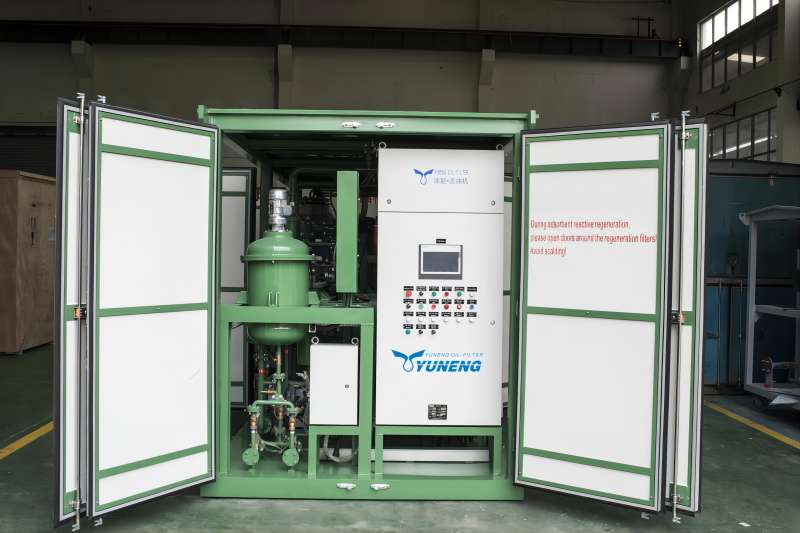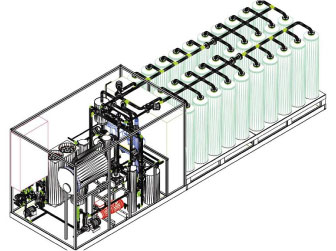Why Reclaimed Transformer Oil Is a Trustworthy Upkeep Remedy
Why Regenerated Transformer Oil Is Crucial for Reliable Power Solutions
The critical function of regenerated transformer oil in ensuring the integrity of power systems can not be overemphasized. By recovering the oil's intrinsic chemical and physical residential or commercial properties, the regeneration procedure dramatically improves its dielectric strength and thermal efficiency. This not just reduces the likelihood of insulation failings however likewise adds to the long life and effectiveness of transformers. As we explore the complex benefits of this method, the effects for both functional expenses and environmental sustainability come to be progressively apparent, elevating necessary questions concerning just how these variables interaction in contemporary electric facilities.
Significance of Transformer Oil
Transformer oil plays an essential role in the effective operation of electric transformers. This specialized oil serves numerous features, mostly as an insulator and coolant, guaranteeing the reputable and secure performance of transformer systems. Its dielectric properties avoid electric discharges, hence safeguarding the stability of transformer elements. By giving thermal conductivity, transformer oil dissipates heat generated throughout electric operation, which is important for keeping optimal operating temperatures and extending the lifespan of the devices.
Additionally, transformer oil serves as a barrier versus wetness and air, which can cause oxidation and destruction of transformer materials. The presence of contaminants in the oil can dramatically harm its shielding residential properties, leading to functional inefficiencies and potential tools failure. Normal tracking and maintenance of transformer oil are therefore essential to making sure the proceeded efficiency of transformers.
The quality and structure of transformer oil are critical, as they straight impact the reliability and efficiency of the electrical systems in which they run. Understanding the relevance of transformer oil is necessary for industries and energies reliant on durable power facilities, emphasizing the need for efficient management and regrowth processes to maintain oil stability in time.
Advantages of Regeneration Process

In addition, the regeneration procedure reduces the destruction of oil, which can cause increased oxidation and acid development. This not only enhances the dependability of the oil however also reduces the risk of transformer failures because of insulation breakdown. The enhanced top quality of restored oil enables transformers to operate at ideal degrees, ultimately causing boosted power effectiveness and minimized functional costs.
Additionally, the regrowth process adds to maintaining the general health of the power system. Transformers can run longer without the need for oil replacement, thus reducing downtime and upkeep efforts. In recap, the regeneration procedure gives substantial benefits by improving the durability and efficiency of transformer oil, guaranteeing that power systems run accurately and effectively gradually.
Environmental Impact and Sustainability
The regrowth procedure of transformer oil significantly reduces ecological worries associated with oil disposal and waste monitoring. Conventional disposal techniques for utilized transformer oil pose substantial home dangers, including soil contamination and water pollution. By regenerating oil, these threats are markedly decreased, as the procedure recycles existing sources as opposed to adding to squander buildup.
In addition, regenerated transformer oil can be reused in different applications, which promotes a round economic situation. This not only minimizes the need for virgin oil extraction-- a procedure that can be eco destructive-- however also saves natural deposits. The regeneration procedure itself uses sophisticated purification and filtration strategies that eliminate harmful impurities, making certain that the last item fulfills or exceeds sector standards for efficiency and safety and security.

Enhancing Transformer Efficiency
Significant enhancements in transformer efficiency can be accomplished through the usage of regenerated transformer oil. This oil, generated via advanced purification procedures, dramatically boosts the electric insulation buildings of transformers. By removing impurities and impurities that usually endanger performance, restored oil ensures remarkable dielectric strength, minimizing the danger of electric failures.
Furthermore, regenerated transformer oil shows boosted thermal conductivity, which promotes effective warm dissipation. This characteristic is vital for maintaining optimal operating temperatures, therefore extending the life expectancy of transformers and reducing the possibility of getting too hot - Transformer Oil Regeneration Process. Improved thermal monitoring likewise adds to the overall dependability of power systems
Furthermore, resource the chemical stability of regenerated oil stops the formation of harsh acids and sludge, which can detrimentally impact transformer elements. By preserving a cleaner inner environment, this oil reduces maintenance needs and expands service periods.
Cost-Effectiveness and Effectiveness
In terms of cost-effectiveness and performance, regrowed transformer oil offers a compelling alternative to traditional oils. The regrowth procedure not just eliminates impurities yet also recovers the oil's initial properties, extending its practical lifespan. This long life equates into decreased frequency of oil replacement, thus decreasing operational prices in time.
Additionally, making use of restored oil can dramatically decrease energy losses connected with ineffective insulating liquids. Its exceptional dielectric buildings ensure optimum efficiency, improving the integrity of power systems. Because of this, services gain from lower upkeep expenses and reduced downtime, cultivating a more reliable functional environment.

Final Thought
To conclude, the regeneration of transformer oil plays an essential function in making certain the integrity and effectiveness of power systems. By restoring the essential chemical and physical residential or commercial properties of the oil, this process enhances dielectric strength and thermal conductivity, eventually lowering the threat of insulation failure. The environmental advantages associated with reusing sources add to sustainability initiatives, while cost-effectiveness and enhanced performance highlight the necessity of using regenerated transformer oil in contemporary electrical facilities.
Transformer oil plays an essential duty in the effective operation of electric transformers. Regular tracking and maintenance of transformer oil are for that reason critical to making certain the continued performance of transformers.
The regrowth process of transformer oil dramatically minimizes ecological problems connected with oil disposal and waste administration. By prolonging the lifecycle of transformer oil, the energy and sources generally eaten in generating brand-new oil are considerably decreased.Significant improvements in transformer performance can be web achieved via the use of regenerated transformer oil.